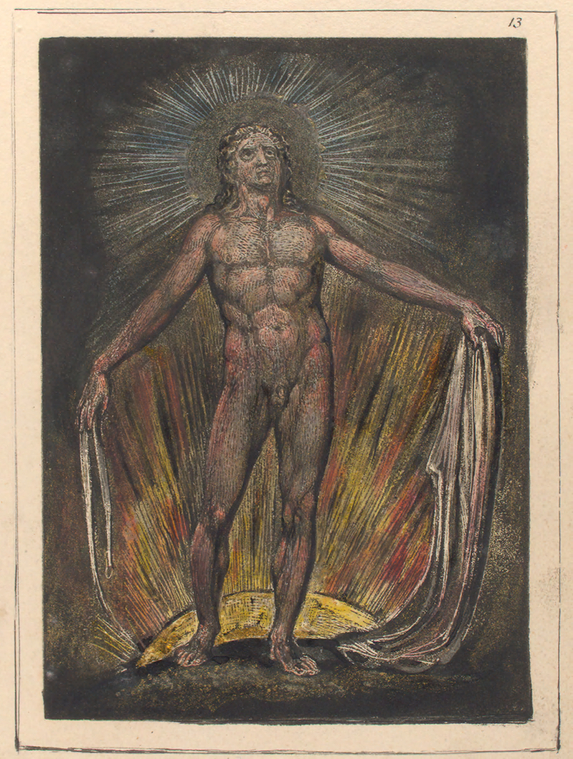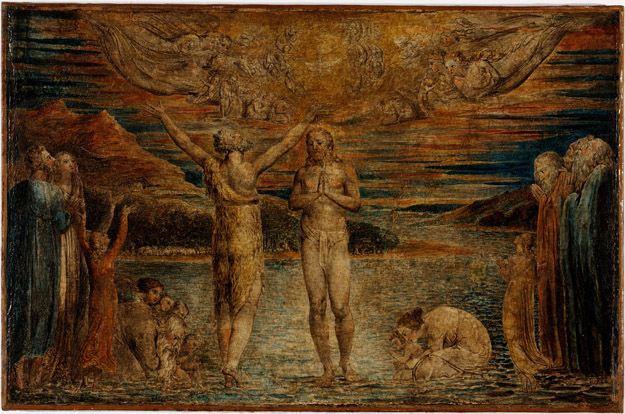 |
| British
Library Four Zoas Manuscript Page 121 |
Repentance
Four Zoas, Night Nine, PAGE 121 (E391):
"Urizen wept in the dark deep anxious his Scaly form
To reassume the human & he wept in the dark deep
Saying O that I had never drank the wine nor eat the bread
Of dark mortality nor cast my view into futurity nor turnd
My back darkning the present clouding with a cloud
And building arches high & cities turrets & towers & domes
whose smoke destroyd the pleasant gardens & whose running
Kennels
Chokd the bright rivers burdning with my Ships the angry deep
Thro Chaos seeking for delight & in spaces remote
Seeking the Eternal which is always present to the wise
Seeking for pleasure which unsought falls round the infants path
And on the fleeces of mild flocks who neither care nor labour
But I the labourer of ages whose unwearied hands
Are thus deformd with hardness with the sword & with the spear
And with the Chisel & the mallet I whose labours vast
Order the nations separating family by family
Alone enjoy not I alone in misery supreme
Ungratified give all my joy unto this Luvah & Vala
Then Go O dark futurity I will cast thee forth from these
Heavens of my brain nor will I look upon futurity more
I cast futurity away & turn my back upon that void
Which I have made for lo futurity is in this moment
Let Orc consume let Tharmas rage let dark Urthona give
All strength to Los & Enitharmon & let Los self-cursd
Rend down this fabric as a wall ruind & family extinct
Rage Orc Rage Tharmas Urizen no longer curbs your rage"
Urizen resolves to reassume the human form - the spiritual.
He is sorry:
1. He ever experienced physicality,
2. sought to see or control the future which by right belongs to
Urthona,
3. distorted the view of present,
4. created a religion of materiality,
5. made the destructive, oppressive economic system,
6. sought distant satisfactions instead of those at hand,
7. failed to recognize the God Within,
8. neglected simple pleasures,
9. divided one from another,
10. used force to engender conformity.
He recognizes that these failings are internal ('in my brain'). He
sees that 'futurity is in this moment.' He relinquishes claim to any
achievements as my own. He recognize the role of each Zoa.
As a result of his repentance: (E391)
"Into the fires Then glorious bright Exulting in his joy
He sounding rose into the heavens in naked majesty
In radiant Youth."
______________________________________________








